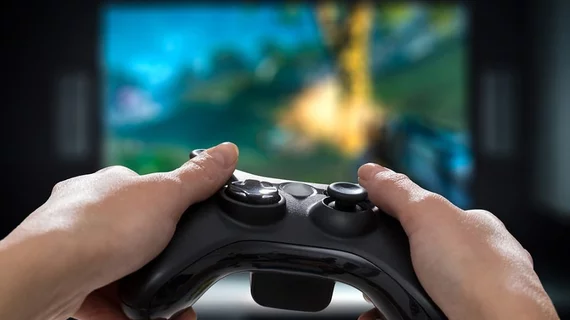The brain imaging-based argument for letting kids play video games
Going by new research, parents of children and teens may do well to give in when the kids ask for more time playing their favorite video games.
As part of the ongoing Adolescent Brain Cognitive Development (ABCD) study, researchers at the University of Vermont examined survey, cognitive and brain imaging data for 9- and 10-year-olds who reported that they either play no video games at all or engross themselves in the pastime for at least 21 hours per week.
What they found will likely surprise many parents who can identify with the struggle to pry their kids away from the controller: Not only were the videogame players faster and more accurate at completing cognitive tasks than those who never played, but the gamers also showed greater brain activity in certain regions of the brain while they were playing.
“The findings are consistent with video gaming improving cognitive abilities that involve response inhibition and working memory and altering their underlying cortical pathways,” psychiatry professor Bader Chaarani, PhD, and coauthors report in a study published by JAMA Network Open Oct. 24 [1].
For example, during the cognitive task involving response inhibition (impulse control), video gamers had greater activity on fMRI than non-gamers in the precuneus region of the brain, which the authors note is typically associated with such complex functions as attention, cue reactivity, memory and integration of information.
This finding could indicate that playing cognitively challenging video games offers game-players opportunities to practice tasks related to impulse control, resulting in greater sensitivity to discriminate between task-relevant and non-task-relevant stimuli under high-load conditions.
During the task involving working memory, video gamers once again had greater activity than non-gamers in the precuneus, as well as greater activity in the cingulate, middle and frontal gyri, which are associated with tasks including visual, attention, and memory processing.
The clinical implication may be that the repeated practice of memory-related tasks in video games plays a role in improving performance on related or similar tasks.
The developmental benefits even showed up when video-gamer group showed lower brain activity on fMRI. The researchers found as much when the imaging revealed comparatively low activity in brain regions related to visual processing during the cognitive tasks. The team believes this effect “may reflect that this area of the brain may become more efficient at visual processing as a result of repeated practice through video games.”
Chaarani et al. note opportunities for future research on the subject, including potential positive and negative impacts, to better inform those looking to understand the full impact of playing video games on brain development.
They write:
Many parents today are concerned about the effects of video games on their children’s health and development, and as these games continue to proliferate among young people, it is crucial that we better understand both the positive and negative impact that such games may have.”
The study is available in full for free.
